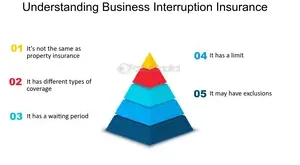Renters insurance is a crucial financial safety net for tenants, providing protection against a variety of risks that can affect both personal belongings and liability. This guide explores the importance of renters insurance, what it covers, and essential considerations for choosing the right policy to safeguard your possessions and mitigate financial risks.
Why Renters Insurance is Essential
Protection for Personal Belongings
One of the primary benefits of renters insurance is coverage for personal belongings. This includes furniture, electronics, clothing, appliances, and other personal items in your rental unit. Renters insurance protects these items against perils such as fire, theft, vandalism, and certain types of water damage.
Liability Coverage
Renters insurance also includes liability coverage, which protects you financially if someone is injured in your rental unit or if you accidentally damage someone else’s property. This coverage can help pay for legal fees, medical expenses, and settlements if you are found liable for causing harm or damage.
Additional Living Expenses
If your rental unit becomes uninhabitable due to a covered event, such as a fire or natural disaster, renters insurance can cover additional living expenses. This includes costs for temporary housing, meals, and other necessary expenses while your rental is being repaired or you find alternative accommodation.
Affordable Coverage
Renters insurance is generally affordable, making it accessible for tenants on various budgets. The cost of renters insurance depends on factors such as the coverage limits, deductible amount, location of the rental unit, and the tenant’s claims history. In most cases, renters insurance provides valuable protection at a reasonable cost.
What Renters Insurance Covers
Personal Property Coverage
Personal property coverage reimburses you for the cost of replacing or repairing personal belongings that are damaged or stolen due to covered perils. This includes items such as furniture, electronics, clothing, appliances, and other valuables up to the policy’s limits.
Liability Coverage
Liability coverage protects you if you are held legally responsible for bodily injury or property damage to others. It covers legal defense costs, medical expenses for injured parties, and settlements or judgments arising from covered incidents.
Additional Living Expenses Coverage
Additional living expenses (ALE) coverage reimburses you for the costs of temporary housing, meals, and other necessary expenses if your rental unit becomes uninhabitable due to a covered event. This coverage ensures you can maintain your standard of living during a temporary displacement.
Medical Payments Coverage
Medical payments coverage pays for medical expenses if a guest is injured in your rental unit, regardless of fault. This coverage is typically limited and helps prevent liability claims and lawsuits over minor injuries that occur on your property.
Choosing the Right Renters Insurance Policy
Assess Your Coverage Needs
Evaluate the value of your personal belongings and consider potential liability risks. Estimate the cost of replacing your belongings and determine the amount of liability coverage you need to protect your assets adequately.
Understand Policy Limits and Deductibles
Review the coverage limits and deductible amount of renters insurance policies. Ensure the policy’s limits are sufficient to replace your belongings and cover potential liability claims. Choose a deductible amount that fits your budget and risk tolerance.
Compare Policies and Providers
Research renters insurance policies from multiple providers to compare coverage options, premiums, deductibles, and customer service ratings. Consider factors such as the insurer’s financial stability and reputation for handling claims promptly and fairly.
Consider Additional Coverage Options
Depending on your circumstances, consider additional coverage options or endorsements for specific risks not covered by standard renters insurance policies. This may include coverage for valuable items, identity theft, or earthquakes, depending on your location and personal needs.
Review and Update Regularly
Regularly review your renters insurance coverage to ensure it remains adequate as your circumstances change. Update your policy to reflect changes such as acquiring new belongings, moving to a new rental unit, or experiencing significant life events.
Common Renters Insurance Myths
Myth 1: My Landlord’s Insurance Covers My Belongings
Many tenants mistakenly believe their landlord’s insurance policy covers their personal belongings. In reality, the landlord’s insurance typically only covers the building structure and may not provide any protection for tenants’ possessions.
Myth 2: Renters Insurance is Optional
While renters insurance is not legally required in most states, it is highly recommended for tenants to protect their personal property and liability. Without renters insurance, tenants may face significant financial losses if their belongings are damaged or stolen, or if they are sued for liability claims.
Myth 3: Renters Insurance is Expensive
Renters insurance is generally affordable, with premiums that vary based on coverage limits and deductible amounts. Compared to the cost of replacing belongings or facing liability claims without insurance, the expense of renters insurance is minimal and worthwhile for most tenants.
Conclusion
Renters insurance provides essential financial protection for tenants, covering personal belongings, liability, and additional living expenses in case of unforeseen events. By understanding the coverage options available, assessing your needs, and choosing the right policy, you can safeguard your possessions and mitigate financial risks while renting. Regularly reviewing and updating your renters insurance ensures you maintain adequate protection as your circumstances change, providing peace of mind and security in your rental home.
 kisskh kisskh | Asian Dramas & Movies
kisskh kisskh | Asian Dramas & Movies









